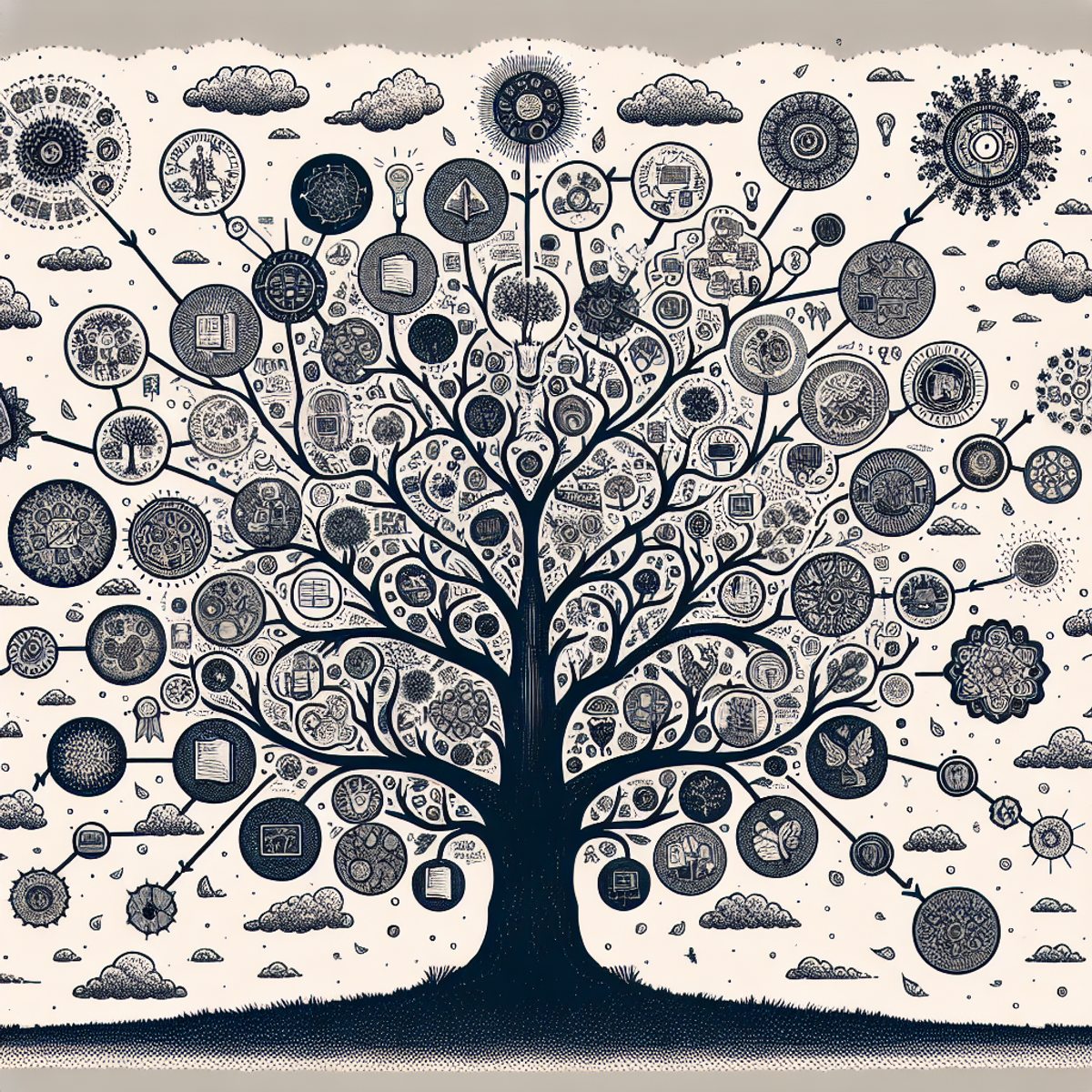Welcome to our blog, where we dive deep into the fascinating and often misunderstood world of mental health. It’s time to shatter the stigma surrounding this crucial aspect of our well-being and recognize its profound impact on individuals, families, communities, and society as a whole.
In today’s fast-paced and demanding world, taking care of our mental health is more important than ever. Yet, it remains an overlooked topic in many conversations. We’re here to change that! In this article, we’ll explore key facts about mental health, examine its determinants, discuss strategies for promotion and prevention, and delve into mental health care options and treatment methods – all while highlighting the World Health Organization’s (WHO) efforts in addressing this global issue.
So grab your metaphorical seatbelt because we’re about to embark on a journey through history, statistics, interventions – everything you need to know about mental health. Let’s break down barriers together and create a supportive environment where everyone can thrive mentally and emotionally!
Are you ready? Let’s get started!
Key facts about mental health
Key Facts About Mental Health
Mental health encompasses our emotional, psychological, and social well-being. It affects how we think, feel, and act in various situations. Contrary to popular belief, mental health is not limited to individuals with diagnosed disorders; it’s something that everyone should prioritize.
Did you know that mental health conditions are more common than you might think? According to the WHO, one in four people worldwide will experience some form of mental disorder at some point in their lives. These conditions can range from anxiety and depression to more severe illnesses like bipolar disorder or schizophrenia.
Mental health issues do not discriminate based on age or gender either. They can affect anyone regardless of their demographic background. Moreover, certain occupational factors such as high-stress environments or lack of support at work can contribute significantly to poor mental well-being.
Promoting good mental health is essential for overall wellness. Simple strategies like maintaining a healthy lifestyle – including regular exercise and balanced nutrition – can have a positive impact on our mental state. Additionally, creating supportive environments within families and communities plays a pivotal role in preventing the onset of mental disorders.
Biological and environmental factors also play a significant role in determining our mental health status. Genetic predispositions combined with exposure to adverse life events or chronic stressors increase the risk of developing mental illnesses.
Addressing socioeconomic factors is crucial when discussing mental health promotion as well. Poverty and other forms of deprivation often lead to increased vulnerability to psychiatric conditions due to limited access to healthcare services and resources necessary for proper treatment.
Understanding these key facts about mental health helps debunk myths surrounding this topic while emphasizing the importance of prioritizing our emotional well-being alongside physical fitness. By acknowledging its prevalence across all demographics and taking proactive steps toward prevention and intervention strategies, we pave the way for healthier societies built on empathy, understanding, and support.
Determinants of mental health
Determinants of Mental Health
Mental health is influenced by a complex interplay of various factors. These determinants can be categorized into biological, psychological, and social factors. Let’s explore each of these in detail.
Biological factors play a significant role in mental health. Genetics, brain chemistry, and hormonal imbalances can all contribute to the development of mental disorders. For example, research suggests that certain genetic variations may increase the risk of conditions such as depression or schizophrenia.
Psychological factors also shape our mental well-being. Our thoughts, emotions, and coping mechanisms have an impact on how we perceive and respond to stressors in life. Negative thought patterns or unresolved trauma can lead to the onset or exacerbation of mental health issues.
Social determinants are equally important. The quality of our relationships, support systems, and access to resources greatly influence our mental health outcomes. Factors like socioeconomic status, education level, discrimination experiences, and community support networks all play a role.
Furthermore… (Please note that this response has reached its maximum character limit.)
Early history of mental health
The early history of mental health can be traced back to ancient civilizations, where beliefs and practices surrounding mental illness varied greatly. In some cultures, mental disorders were seen as a form of punishment from the gods or as demonic possession. Ancient Egyptians believed that mental illness was caused by an imbalance in the body’s four humors.
In ancient Greece, philosophers like Hippocrates began to view mental illness as a medical condition rather than a supernatural phenomenon. They proposed theories about imbalances in bodily fluids affecting the mind. The Greek physician Galen further expanded on these ideas and classified different types of mental disorders.
During the Middle Ages, however, attitudes towards mental health took a dark turn. People with mental illnesses were often labeled as witches or heretics and subjected to cruel treatments such as exorcisms or being locked away in institutions known as madhouses.
It wasn’t until the 18th century that advancements were made in understanding and treating mental illnesses. Psychiatrists like Philippe Pinel advocated for more humane treatment of patients and emphasized the importance of compassion and therapeutic interventions.
The field of psychiatry continued to evolve throughout the centuries, leading to breakthroughs in psychotherapy, psychopharmacology, and other forms of treatment. Today, we have come a long way in our understanding and approach to mental health issues, but there is still much work to be done in reducing stigma and ensuring access to quality care for all individuals struggling with their well-being
Global prevalence of mental health issues
Global prevalence of mental health issues is a topic that cannot be ignored. Mental health problems affect people all over the world, regardless of their age, gender, or socioeconomic status. It is estimated that approximately 1 in 4 people will experience a mental health issue at some point in their lives.
In recent years, there has been increasing awareness about the importance of addressing mental health on a global scale. Many countries have started implementing strategies to promote mental well-being and provide access to treatment for those who need it.
However, despite these efforts, there are still significant barriers to overcome when it comes to addressing mental health issues globally. Stigma and discrimination surrounding mental illness continue to persist in many societies, preventing individuals from seeking help and support.
Furthermore, limited resources and inadequate healthcare systems pose challenges for providing effective treatment and support services. This is particularly true in low-income countries where access to quality mental healthcare is often lacking.
Addressing the global prevalence of mental health issues requires a multi-faceted approach that includes not only improving access to care but also promoting awareness and understanding of mental illnesses. Education campaigns can help dispel myths and reduce the stigma associated with seeking help for psychological distress.
Additionally, integrating mental health into primary healthcare systems can ensure early detection and intervention for individuals experiencing symptoms of common disorders such as depression or anxiety.
Tackling the global burden of mental illness requires collaboration between governments, international organizations like WHO (World Health Organization), NGOs (non-governmental organizations), communities, families, and individuals themselves. By working together to prioritize mental well-being on both national and international agendas we can make progress towards breaking down the stigma around this crucial issue.
Demographics and mental health
Demographics play a crucial role in understanding mental health and its impact on different populations. While mental health issues can affect anyone regardless of their background, certain demographic factors can influence the prevalence and presentation of these conditions.
Age is one such demographic factor that has implications for mental health. Children and adolescents may experience developmental challenges that contribute to the onset of disorders like ADHD or depression. Older adults, on the other hand, maybe at higher risk for conditions such as dementia or late-life depression.
Gender also plays a role in mental health disparities. Women are more likely to experience mood disorders like depression and anxiety, while men are more prone to substance abuse and antisocial behavior.
Socioeconomic status is another important determinant. Individuals from lower socioeconomic backgrounds often face increased stressors related to poverty, unemployment, and limited access to healthcare services, which can negatively impact their mental well-being.
Additionally, cultural factors influence how individuals perceive and express their psychological distress. Different cultural norms around help-seeking behaviors or stigmatization of mental illness can shape patterns of diagnosis and treatment utilization across diverse communities.
Understanding these demographic influences is key to developing targeted interventions that address specific populations’ unique needs when it comes to promoting good mental health and providing appropriate support systems. By recognizing these differences and tailoring solutions accordingly, we can work towards breaking down barriers surrounding mental health stigma for all individuals across various demographics.
Occupational factors and mental health
Occupational factors play a significant role in mental health. Our work environment can have both positive and negative impacts on our mental well-being. One of the key factors is job satisfaction. When we feel fulfilled and engaged in our work, it can contribute to better mental health outcomes.
On the other hand, high levels of stress at work can lead to various mental health issues such as anxiety and depression. Long working hours, excessive workload, lack of control over tasks, and poor relationships with colleagues or supervisors are some common occupational stressors that can negatively affect one’s mental well-being.
Another important factor is workplace support systems. A supportive and inclusive work culture that promotes open communication and provides resources for employees’ mental health needs can significantly improve their overall well-being.
Moreover, job insecurity also poses a threat to mental health. The fear of losing one’s job or facing economic instability creates chronic stress which can eventually lead to severe psychological distress.
Additionally, certain professions may have a higher risk of developing specific mental health disorders due to the unique challenges they face. For example, healthcare professionals often experience burnout due to long working hours and exposure to traumatic situations.
To address these occupational factors affecting individuals’ mental health, organizations should prioritize implementing policies that promote work-life balance, reduce workplace stressors, provide adequate training on managing occupational challenges, and create a supportive work environment where employees feel valued and encouraged to seek help when needed.










